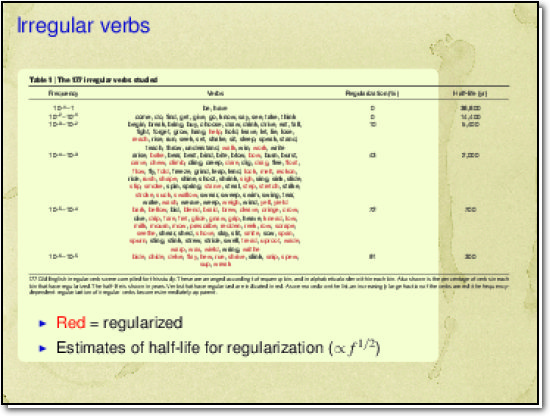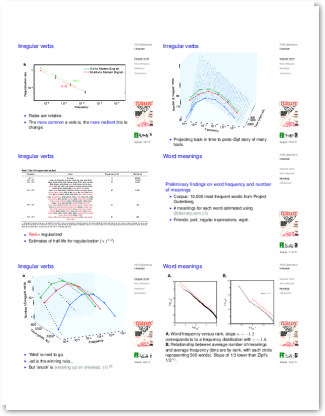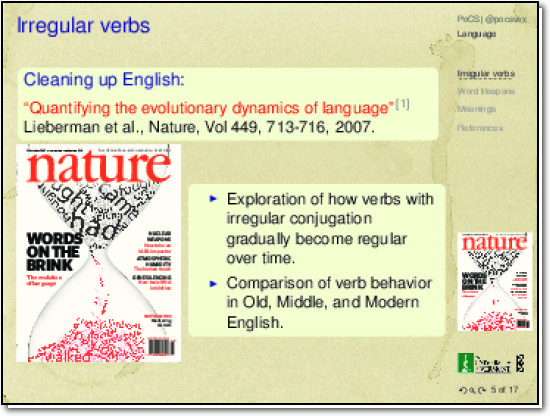Episodes:
Below is a list of lecture slide sets interspersed with video of each episode. Slides will become available as the semester progresses.
Slide sets are often spread over several episodes so below you will find separate, interconnected episode and slide lists.
All lectures are necessarily bottle episodes; we will occasionally overlay some other tropes.
The slides are clickable pdf's, with links to relevant articles and web pages, section links in the sidebar, and navigation icons at the bottom of each slide. The reference section for each set of slides includes links to papers; superscript citation numbers link to the reference section as well (please let me know if any links or penguins behave badly).
Due to remorseless tinkering, the slides may change a little from what was recorded. Some video details:
- Screen capture and video creation is made possible by ScreenFlow.
- Implements include several iPod touches, the Swivl thing, Contour Roam2, Sennheiser wireless kit, and a Countryman microphone.
- Slides will generally be viewable in HD (720p).
- The youtube playlist for all videos is here.
- No comfy chairs will be used.
To generate these lectures, I use the excellent beamer LaTeX class, XeLaTeX (new this season), PerlTeX, and a selection of handcrafted, possibly dangerous Perl scripts. Because It Is Right, I follow the one true path of Emacs with an almost fanatical devotion.
Each set of slides comes in three delicious flavors:- The slides pdf's have flattened frames and are better for reading separately online. Use these if you follow the (terrifyingly long) videos and want to click on things.
- If you want a printed copy, because trees upset you, the handout pdf's provide condensed and collapsed versions of the slides. These aren't very hyperlinky however (such is paper).
Episode Guide:
Slide Guide:
Episodes:
Slides:
Additional topics and extra lectures:
-
Language evolution:
[slides] [handout] [lecture] 


-
Sociotechnical Phenomena—computation and algorithms:
[slides] [handout] [lecture]
-
Personality distributions:
[slides] [handout] [lecture]
-
Shocks and Memory:
[slides] [handout] [lecture]
-
Cooperation:
[slides] [handout] [lecture]
-
Prediction:
[slides] [handout] [lecture]
-
Collective Intelligence:
[slides] [handout] [lecture]
-
Cities:
[slides] [handout] [lecture]
-
Entropy:
[slides] [handout] [lecture]
-
Information theory:
[slides] [handout] [lecture]
-
Generalized contagion:
[slides] [handout] [lecture]
Collected course bibliography:
-
[slides]
[handout]
[lecture]

